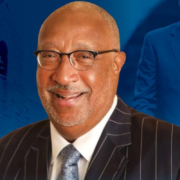— DANA GIVENS, BLACK ENTERPRISE
There has been a great deal of debate surrounding whether university campuses should re-open their doors considering where we are in the coronavirus pandemic, as some districts choose to reopen despite warnings from health experts. This week, it was revealed that Dr. Irving Pressley McPhail, president of Saint Augustine University in Raleigh, North Carolina, has passed away after contracting the COVID-19 virus. The school made the announcement on its social media pages to alert students and faculty of the death.
— Credits
Featured Image, Saint Augustine’s University
FULL ARTICLE @ BLACK ENTERPRISE
— Related
Historically Black Colleges and Universities (HBCUs) are institutions of higher education in the United States that were established before the Civil Rights Act of 1964 with the intention of primarily serving the African-American community. Most of these institutions were founded in the years after the American Civil War and are concentrated in the Southern United States. During the period of segregation in the United States prior to the Civil Rights Act, the overwhelming majority of higher education institutions were predominantly white and completely disqualified or limited African-American enrollment. For a century after the end of slavery in the United States in 1865, most colleges and universities in the Southern United States prohibited all African Americans from attending, while institutions in other parts of the country regularly employed quotas to limit admissions of blacks.
There are 101 HBCUs in the United States, including both public and private institutions (of 121 institutions that existed during the 1930s). Of these remaining HBCU institutions in the United States, 27 offer doctoral programs, 52 offer master’s programs, 83 offer bachelor’s degree programs, and 38 offer associate degrees.
Source – Historically Black Colleges and Universities – HBCUs (Updated: 20 October 2020) Wikipedia. Available at https://en.wikipedia.org/wiki/Historically_black_colleges_and_universities, (Accessed: 23 October 2020)

